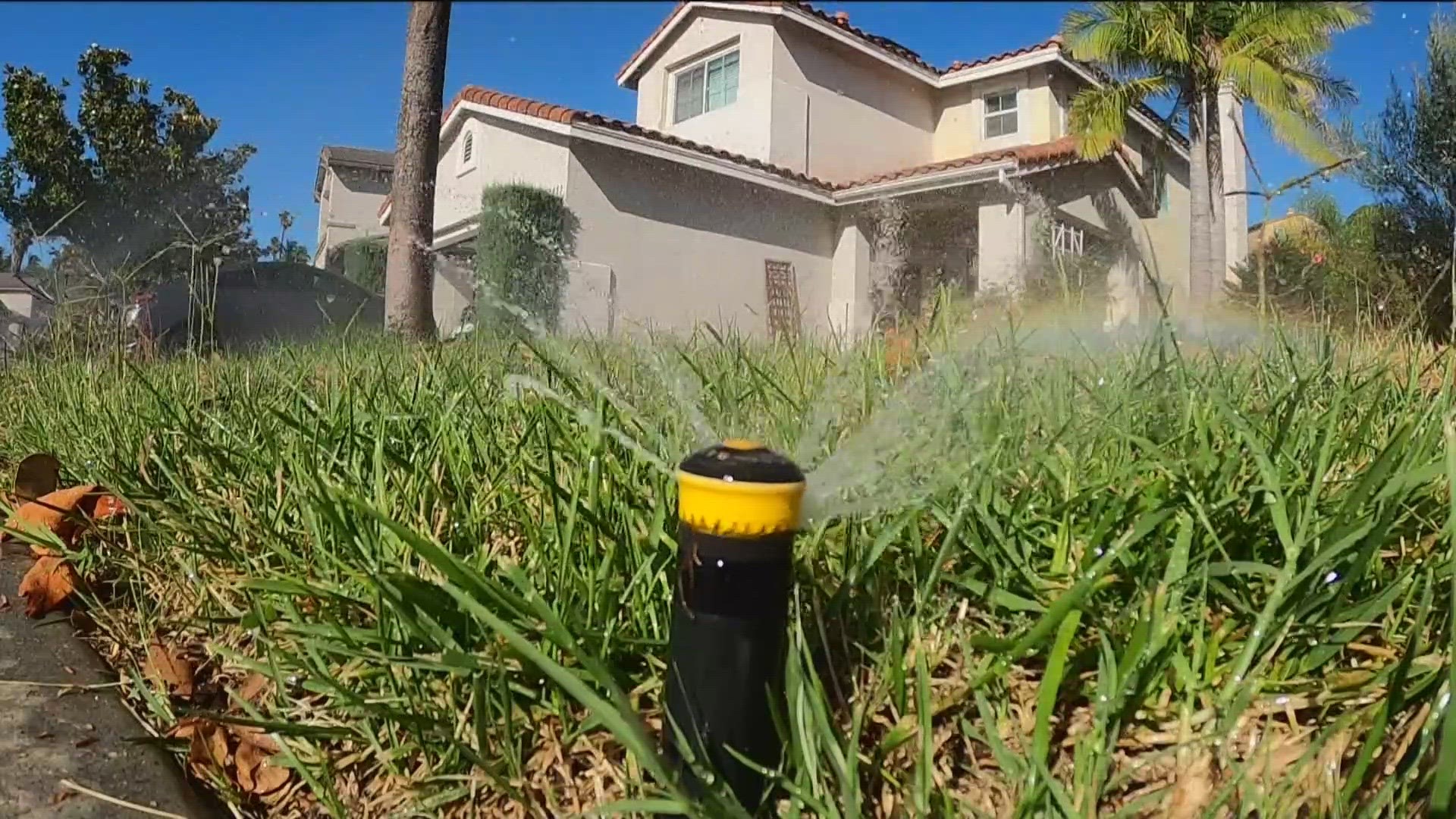SAN DIEGO — The hot weather has been hard on us humans, but just think what it's been like on your landscape.
For this Earth 8, we talked to an expert on how to protect your plant from damage.
"Waiting until your plants are begging for water is a problem. Don't wait for them to be wilting and drought-stressed," said David Ross, Senior Manager at Walter Andersons Nursery in Poway.
"We had the greatest Winter that I ever remember, and the plants were thriving on all that clean water... but it's been a long time since we've had some real rain," Ross said.
Combine that with the heat wave we're seeing, and landscapes are taking a beating. Ross says it's probably not enough water if you're using drip irrigation.
"When you're watering with a drip system, the dripper has to be on long enough to water a 2' to 3' circle and 1 foot down," Ross said.
Watering ahead will help your plants beat the heat.
"If you soak them well, most plants that are established in the ground for 2 Summers will only need to be watered one or a half times a week," he said.
Of course, if a plant is wilting or showing signs of stress, water it, but Ross does have a time when he prefers water.
"I like to water in the morning, so things dry out during the day. Watering overnight can encourage mildew and fungus because the foliage stays wet overnight," Ross said.
Water is expensive here in San Diego, so here are some tips to help save.
"Mulching, mulching, mulching. This is the biggest thing you can do to reduce water use and make your plants healthy and prosperous," Ross said.
For lawns, it's about how you water.
Bermudas can get away with one good deep watering a week. Tall fescues need two good waterings a week.
But if the water is running off your lawn, use a penetrant that will relieve surface tension.
"Water that in and that will open up the soil so that the water will go down deeper so you won't be constantly water," Ross said.
And for those that have a potted garden try shade cloth.
"Which does make a huge difference. Sun plants will take 50% shade, and shade plants will take 50% sun," he said.
One of Ross' best tips was to pay attention to what your garden looks like when it's healthy. So, when it does start to stress, you can take steps to prevent damage.
WATCH RELATED: Flyers and plastic creating elevated liter around San Diego County

